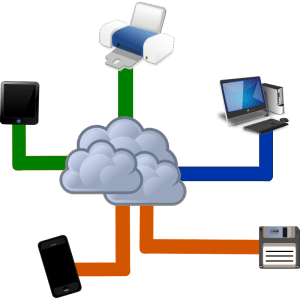In most simple words, Cloud Computing implies storing of files over the internet instead of computer’s hard drive. It is an internet-based computing where large groups of remote servers are networked with the purpose of centralized data storage. The sharing of files has become important and cloud-based file sharing gives employees the flexibility in their file accessibility. Cloud Computing helps employees to access files remotely from smartphones and tablets. This also reduces Virtual Private Network costs.
[leaderad]
Cloud computing connects users from all over the world, sharing information by way of satellite networks. The information is stored on physical servers and is maintained and controlled by a cloud computing provider. There are several different types of cloud computing services, catering to the needs of users efficiently.
Merits of Cloud Computing
-
Easy access to your documents
With cloud computing, you can have easy access to your information with minimal upfront spending. You will get more work done with less people. Once you register in the cloud, you get access to the information from anywhere and at any time, moving beyond time zone and geographical location issues. -
Cost efficient
Cloud computing offers you an efficient way to manage your documents and files. The cloud is available at much lesser rates as compared to desktop software costs and licensing fees. There are several payment option in cloud and you can choose to make one-time payment, pay-as-you-go or choose other scalable options. -
Monitor projects more effectively
Cloud Computing helps you to stay within budget and even ahead of cycle times. You can easily set up cloud within minutes and adjust your individual settings like the devices you want to connect to network, choosing the password, and many more. -
Excellent storage
Cloud computing provides you with almost unlimited storage capacity. You need not to worry about running out of storage space. -
Automatic Updates
The provider you select for cloud computing services is responsible for making sure that the updates are available. This saves your time as you do not need to take additional efforts to customize and integrate your applications. -
Easy backup
As all data is stored in the cloud, backup and restore of data is much easier as compared to storing the data on a physical device. Also, cloud service providers are competent enough to handle recovery of your data.
Demerits of Cloud Computing
-
Reliability on internet
Cloud computing is completely reliable on internet access. If you are in area that does not have internet access, you won’t be able to open any documents you have stored in the cloud. -
Security issues
When you are using a cloud computing service, you are handing over your data to a third party. As the users are accessing same server all over the world, there can be security issues. This could potentially put your business entity at a risk. -
Privacy issues
Cloud computing comes with risk of unauthorized users and there can be times which can cause serious dysfunction. Technology is always prone of technical and privacy issues. Even the best service providers run this risk.
Wrapping Up
Cloud Computing comes with many advantages for you and your business. The service is increasingly in demand and like everything, has some disadvantages as well. It proves to be a great asset to your business, but can cause harm when not rightly understood. As more people continue to use it, the cost is decreasing.
What cloud computing services do you use? Share your views with us in the comments.






